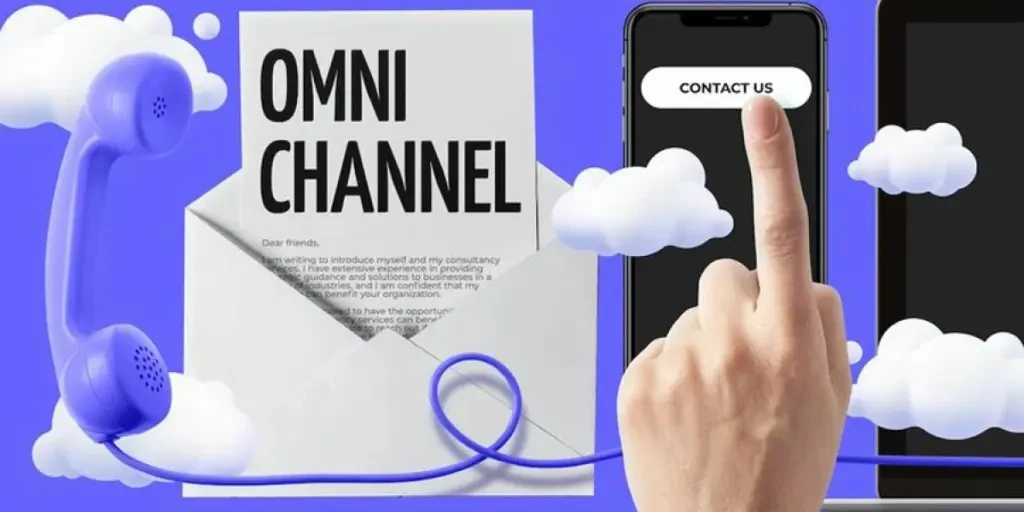To succeed in today’s cutthroat business climate, companies must provide a consistent, high-quality client experience across all channels.
How can we strengthen this vital capacity to engage customers across all channels?
There are no silver bullets, but tools like Salesforce Marketing Cloud provide a broad variety of capabilities to help you stand out from the crowd.
Contents:
What is Personalized Omni-Channel CX?
Maximizing Brand’s Reach with the Marketing Cloud
Connecting other Salesforce services
What is Personalized Omni-Channel CX?
Ok, what is Omni-channel CX and why should every organization aspire for it?
Omnichannel customer experience (CX) is a customer experience strategy that focuses on offering a seamless experience across numerous channels, such as physical shops, online, mobile applications, and social media.

The goal is to provide a uniform experience for customers regardless of the channel via which they interact with a company.
Some ways to do this include providing individualized content and experiences, facilitating the seamless transfer of customer data between channels, and analyzing customer activity for actionable insights.
Omni-channel CX supports businesses in establishing customer trust, loyalty, and engagement.
How to build an omni-channel CX using Marketing Cloud
Creating an omni-channel experience with Salesforce Marketing Cloud means leveraging the platform’s various features and resources to create a cohesive and personalized customer experience across several channels.
This entails using the platform’s email, SMS, and social media marketing tools to create targeted campaigns and attractive content.
The platform’s automation, segmentation, and analytics capabilities may be used to customize the customer experience and ensure that the appropriate message is delivered to the right consumer at the right time.
In other words, make the most of all the Marketing Cloud resources at your disposal; if you need help figuring out how to achieve this, just contact our specialists.
How to leverage the Marketing Cloud’s segmentation, automation, and analytics features to create targeted campaigns and content that will be shown to each segment
By blending the platform’s tools for customer segmentation, automation, and analytics, you will be able to develop targeted marketing campaigns and content for each customer category:
- First off, you need to decide which types of customers you want to focus on reaching.
- The segmentation attributes can then be used to segment customers based on demographic, interest, behavior, and other variables. This can be accomplished by using the segmentation attributes.
- Once the various consumer groups have been identified, you will be able to make use of the platform’s automation and analytics tools in order to develop marketing campaigns and content that are specific to each of these groups.
- With this, you will be able to provide individualized experiences and messages to each segment of your audience while simultaneously ensuring that your campaigns and content are interesting and successful.
How to build a highly personalized CX using Marketing Cloud
Personalized and omni-channel experiences are very interdependent and correlating concepts. By providing one, you provide the other. Therefore, the strategy is rather similar.
To create an experience targeted to specific clients, tailor campaigns and content to individual consumer requirements and preferences by using the platform’s segmentation, automation, analytics, and customization tools.
You can also leverage the platform’s integrated Customer Profile Data and Customer Data Platforms, to design a uniform and consistent customer experience across all channels.
How to use Salesforce Marketing Cloud to create a flawless customer journey
A personalized client journey may be created in a few steps:
- To begin, you must identify the essential consumer touchpoints and client categories engaged in your journey.
- Next, using the platform’s segmentation, automation, and analytics tools, you can develop tailored campaigns and content for each category.
- You may also leverage the platform’s personalization services to personalize the experience to specific clients.
- Lastly, you can use the platform’s analytics and reporting capabilities to assess the performance of your campaigns and acquire useful insights into consumer behavior.
Maximizing Brand’s Reach with the Marketing Cloud

How Marketing Cloud enhances existing brand-customer relationships
Brands are strongly invested in their loyal client base. They are doing all possible to gratify their followers. They have the potential to significantly strengthen their connections with their clientele by utilizing the various tools available within Marketing Cloud.
Brands can get a more in-depth insight of their consumers’ demographics, interests, and purchase behaviors via the use of built-in predictive analytics to create experiences that are consistent and personalized across all digital platforms. This, in turn, may increase customer care interactions as well as sales performance as well as monitoring of client data.
As an illustration, a brand may use analytics to identify certain customer segments that demonstrate a high level of engagement with their product, and then tailor their messaging and experiences to those segments.
On top of this, businesses may use the data to monitor consumer contact, communicate with consumers, track complaints and ideas, and discover areas in which the quality of their goods and services can be improved.
Guess case: how to boost engagement rates
Guess has almost 1600 stores across 100 countries. Regardless of the company’s pre-digital successes, overcoming information silos during a digital transition was challenging.
With 16 million social media followers and 3.5 million customer records, the company’s greatest challenge was turning all that data into earnings.
Marketing Cloud and other Salesforce services made it easy to gather all the customer purchase, behavior, and preference data.
Marketing Cloud also helped Guess manage its various marketing projects and generate marketing messages in several media, determining the most effective for each customer without irritating them.
They used Marketing Cloud to simplify and customize their operations and reach their target audience at the right time.
On top of this, Guess leveraged Einstein AI to enhance customer customization and the shopping experience, including a system of individualized suggestions for online shoppers to increase conversion rates.
As a result, the brand was able to build a more effective data management strategy when launching campaigns or interacting across many platforms. The brand saw a considerable boost in engagement rates and ROI, among other things.
Brunello Cucinelli case: bringing the warmth of their hometown to the online world
Brunello Cucinelli is a storied Italian fashion business that sought to bring their hometown’s warmth, friendliness, and responsiveness to the online world. To achieve this, they needed to find a way to preserve their genuine vibe during the digital transformation process.
With the help of Salesforce services (Marketing Cloud in particular), they developed a plan that allowed them to provide customers with what they wanted via omni-channeling and personalization.
As a result, the company was able to fourfold their online sales, and their digital business continues to grow rapidly, conquering new international markets. Moreover, customers still feel appreciated, as they can often reply to emails by addressing them directly to Brunello himself.
Boggi Milano case: blurring the lines between online and offline
Boggi Milano is a Milan-based fashion business that has contributed to the establishment of the “Made in Italy” label. Boggi Milano entails 140 stores in 31 countries, the brand’s specific history, a distinct attitude to customers, very high quality standards, and an extraordinary reputation.
They were looking to better their clients’ omni-channel and personalization experiences throughout the digital transformation.
The organization added a Marketing Cloud to its arsenal in order to better understand clients and unify and consolidate all marketing processes.
As a consequence, they were able to blur the lines between online and offline dimensions and coordinate the work of internal and digital teams, resulting in an exceptional shopping experience whether the purchase was done in-person or online.
Connecting other Salesforce services
Well, we’ve described how to utilize the Salesforce Marketing Cloud in a manner that will win your consumers’ hearts, so have a look at that.
If it isn’t enough for you, are you really serious?
Alright then, there is one more detail that may further strengthen the impact of the omnichannel experience. And you are aware of it.
After analyzing a bunch of cases, you can come to an obvious conclusion. The reason why companies can provide such a streamlined and high-quality customer experience is due in no small part to blending of multiple Salesforce’s cloud services (Marketing + Sales + Commerce + Service, and so on). Without the synergy of various Salesforce services, this precise and personalized omnichannel experience is something that would be harder to achieve.
- Commerce Cloud
- Sales Cloud
- Marketing Cloud
- Service Cloud
- Experience Cloud
- Analytics Cloud
We think you still have one more inquiry…
“Do I need developers to implement the Salesforce Marketing Cloud and get the most of it?”
And, yes, developers are required to implement Marketing Cloud and other Salesforce services, and, naturally, to make the most of them.
Developers can design and build campaigns and customer experiences that are tailored to your specific needs using the platform’s powerful automation, personalization, and integration features. Seasoned Salesforce experts can also use the platform to build custom reports, integrate with other Salesforce services and third-party services, and automate business processes.
Source from Grinteq
Disclaimer: The information set forth above is provided by grinteq.com independently of Chovm.com. Chovm.com makes no representation and warranties as to the quality and reliability of the seller and products.




